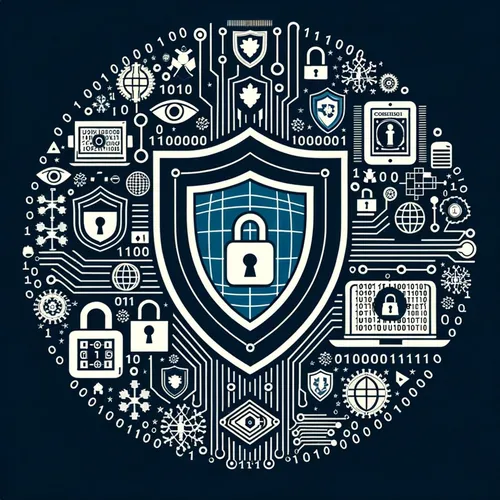Cyber Sparks Fly: China Hacks, Pentagon Leaks, and DOJ Drops the Hammer!
- Author
- Quiet. Please
- Published
- Sun 07 Sep 2025
- Episode Link
- https://www.spreaker.com/episode/cyber-sparks-fly-china-hacks-pentagon-leaks-and-doj-drops-the-hammer--67665506
This is your Tech Shield: US vs China Updates podcast.
Hey listeners, Ting here—your friendly neighborhood cyber-wonk with a nose for all things China and hacking. Buckle up, because this week’s Tech Shield update is as wild as a malware-carrying GOP email, and yes, that actually happened.
Let’s hit the headlines fast. On the frontlines, U.S. agencies have been hammered—again—by Chinese state-sponsored cyber threat actors. According to Google’s threat intelligence team, Chinese-linked groups like the infamous Mustang Panda have deployed sophisticated backdoors—think heavily obfuscated malware named SOGU.SEC—against government networks worldwide, including our critical infrastructure. Even diplomats in Southeast Asia got caught in the digital crossfire, as did U.S. trade talks, after a fake email from Representative John Moolenaar was weaponized with APT41 malware traced back to Chinese intelligence. I kid you not; the FBI is now on the case, with Moolenaar himself declaring, “We will not be intimidated.” You have to appreciate a good old-fashioned, bravado-filled statement while under cyber siege!
On the strategic level, the U.S. just rolled out enforcement of the Data Security Program, or DSP. This bad boy from the Department of Justice aggressively tightens regulations around any company handling digital data that could cross national borders—meaning everyone from big banks to your neighborhood bookstore is now on the compliance hook. The grace period ended in July, so by October, mandatory reporting and audits kick in. Failing to comply? It’s not just a corporate oops—there are steep penalties, with the DOJ calling this an “unusual and extraordinary threat” to U.S. security.
Why the heat? A jaw-dropping report from the House Select Committee on China just uncovered that over $2.5 billion in Pentagon research funding—taxpayer cash, mind you—supported more than 1,400 projects with Chinese collaborators, including top defense universities like Beihang. That’s like inviting the PLA to your blue team exercise. Arizona State and the University of Texas were named for their China joint projects with huge cyber warfare relevance, and now there’s a move in Congress to flat-out ban such research relationships. Expect some serious shake-ups for academic-industry partnerships. The push is on to wall off military tech, from AI to hypersonic systems, from leakage to the other side of the Pacific.
On the industry front, defense contractors and cybersecurity firms like HackerStrike and Cloud9 are flaunting their newest AI-integrated threat detection stacks. AttackIQ is leading with proactive code injection resistance. Meanwhile, the private sector’s scrambling to patch Microsoft SharePoint vulnerabilities after recent revelations that Chinese groups had quietly exploited them—prompting emergency notices from none other than CISA.
Now, let’s not glaze over China’s response: a grandiose military parade in Beijing flaunted their new PLA Cyberspace Force and arsenal of space and information warfare tools. Analysts at RAND highlight that China’s no longer just waving flags; these guys are wired for multi-domain combat, thrilled to show off cyber as much as rockets or tanks.
Quick expert take: The rope keeps getting tighter. America’s stepped up with DSP and trade blacklists, but regulatory fragmentation—and inconsistent university safeguards—leave holes big enough for a panda to waltz through. On the plus side, industry and government are finally, if belatedly, speaking the same language: zero trust, continuous monitoring, and banning high-risk research links. Progress, but the chess game is far from over.
Thanks for tuning in to this week’s Tech Shield: US vs. China update. Subscribe for more brainy banter and world-watching with me, Ting. This has been a quiet please production, for more check out quiet please dot ai.
For more
